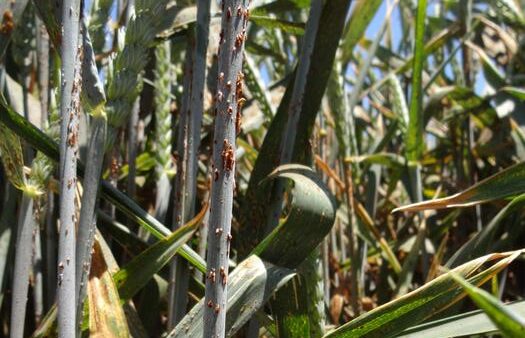AT CSGA, we are proud of our track record as a reliable and modern regulatory partner. As Canada’s seed crop certification body, we are dedicated to ensuring quality seed from improved varieties to benefit farmers, agriculture and Canadians. We have done this for over a century and are ready to do more.

CSGA Executive Director
We want to bring Canada’s trusted, science-based seed certification system into the future by expanding our delegated authority and delivering a digital single window for the sector.
What does this mean? By design, Canada’s current seed certification system is fragmented between seed crop certification — administered by CSGA — and seed certification administered by the Canadian Food Inspection Agency (CFIA).
CSGA has the authority to certify seed crops and set standards for varietal purity. We also recognize plant breeders, accredit plot producers, and approve Breeder and Select seed. The CFIA is the official body that certifies Foundation, Registered, and Certified seed.
Our unique public-private partnership has spanned 118 years, and our seed certification system relies on this relationship. Government oversight provides buyer assurances, international confidence in Canada’s seed and crop systems, and increased consumer trust in plant breeding innovation.
However, this also means growers, third parties, and seed companies must navigate multiple sites and processes to complete seed certification. This can be a frustrating, confusing and time-consuming process.
When we say we want to see CSGA’s delegated authority expanded, we’re not talking about a drastic change to the fundamental framework of seed certification. We’re talking about opportunities to incorporate new technology and future proof through mechanisms like incorporation by reference.
We see a system where CSGA serves as the national designated authority to manage all administrative functions of seed certification, while the CFIA remains the ultimate authority for seed and seed certification in Canada.
There are many examples of how this can be done successfully, as governments worldwide have delegated authority to non-government organizations to be the national seed certification agency. A few examples include the Netherlands (NAK), France (SEMAE) and England (NIAB).
Expanded CSGA authority doesn’t mean taking over the role of other seed organizations. While no country globally has competing seed certification bodies, many have complementary organizations. In the Netherlands, the NAK handles seed certification like CSGA, and PLANTUM’s role is similar to Seeds Canada’s.
What we are proposing is not a new idea but rather a tried and tested evolution of a mature seed system. It’s an opportunity for each organization to play to its strengths and grow.
CSGA can add value to the system through a digital single window framework. When we look at the future of seed certification, we see a system that leverages digital tools and innovations, prioritizes the user experience and fulfills regulatory obligations.
By establishing a single window for seed certification services, we would enable a digital-end-to-end certification system with access to all seed regulatory documentation in a single, easy-to-use platform. This would simplify processes, reduce burden and cost, eliminate duplicate data requirements, and expedite decision making. The future is digital, and this approach makes sense for today’s modern seed sector.
Our sector has grown and matured significantly in the last few decades. The current framework needs modernizing, but it’s not broken. We are ready to lead our trusted, high-performing seed system with confidence and reliability.














